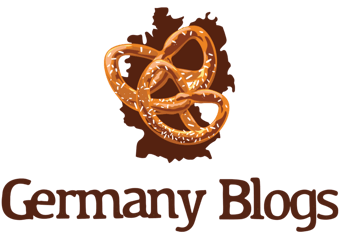The Supermarket Hierarchy in Germany: From Luxury to Budget
Let’s break it down from the most expensive to the cheapest and decode the types of groceries they offer.
EXPLORE
2/5/20253 min read


The Supermarket Hierarchy in Germany: From Luxury to Budget
If you’re an American living in or visiting Germany, one of the first things you’ll notice is that grocery shopping feels different. Supermarkets here follow a clear hierarchy, from high-end luxury stores to ultra-budget discounters. Understanding where each chain falls on this spectrum can help you make the right choice based on your budget, shopping style, and grocery needs.
Let’s break it down from the most expensive to the cheapest and decode the types of groceries they offer.
1. High-End Supermarkets: Feinkost & Premium Shopping
These are the Whole Foods of Germany—if Whole Foods had an even pricier cousin.
Edeka (High-End Locations) & Rewe (Premium Version)
Think of Edeka and Rewe as Germany’s answer to Kroger or Safeway, but with premium versions that are closer to a fancy Wegmans.
Large stores offer fresh, organic produce, a vast selection of meats, cheeses, and international products.
Many locations have gourmet deli sections, wine cellars, and artisanal bread.
Prices are noticeably higher, but you pay for quality and variety.
Store aesthetics are top-notch, with neatly arranged shelves and a comfortable shopping experience.
Tegut
More niche but known for organic, eco-friendly groceries.
Similar to Trader Joe’s but with more emphasis on regional and organic goods.
Expect higher prices due to the organic certification.
Basic & Denn’s Biomarkt
If you’re looking for a German version of Whole Foods, this is it.
100% organic groceries, sourced sustainably.
Higher price tag but ideal for health-conscious shoppers.
2. Mid-Range Supermarkets: The German Standard
These are your average, go-to supermarkets where most Germans shop regularly.
Regular Edeka & Rewe Stores
Standard versions of these chains offer a broad mix of brand-name products, private-label goods, and fresh produce.
Prices vary based on location, with city-center stores being pricier than suburban ones.
You’ll find high-quality German and international products without breaking the bank.
Kaufland
Germany’s version of Walmart Supercenter.
Large-format stores with an extensive selection of groceries, household items, and electronics.
Prices can range from mid-tier to budget-friendly, depending on what you buy.
Great for bulk purchases and families.
3. Discount Supermarkets: Budget-Friendly Shopping
These are the Aldi-style stores where efficiency meets affordability. You’ll notice that prices drop significantly as the store layouts become simpler and product selection becomes more focused.
Lidl & Aldi Süd/Nord
The closest thing to Aldi in the U.S., but even more no-frills.
Primarily house-brand products, which are high quality but lack variety.
Limited selection compared to traditional supermarkets, but significantly cheaper.
Excellent for staples like milk, bread, eggs, and frozen foods.
Netto & Penny
Slightly cheaper than Lidl and Aldi but with a rougher shopping experience.
A mix of name-brand and private-label products at a discount.
Not as organized or pleasant to shop in, but perfect for quick, low-cost purchases.
4. The Cheapest: No-Frills Shopping
At the bottom of the price hierarchy, we have the ultra-budget supermarkets. These stores sacrifice store layout, service, and variety for rock-bottom prices.
Norma
The lowest of the low in price, often beating Aldi and Lidl.
Stores are small, disorganized, and basic, with limited fresh produce.
If you’re okay with a no-frills shopping experience, it’s the cheapest way to fill your fridge.
Key Takeaways for Americans
Edeka (premium) and Rewe (premium) = Wegmans or Whole Foods – Expensive, high-end, great selection.
Regular Edeka, Rewe, and Kaufland = Kroger or Safeway – The everyday choice for many Germans.
Aldi, Lidl = The original Aldi & Trader Joe’s vibes – Discounted but reliable.
Netto, Penny = The cheapest regular supermarkets – Good for basic needs, but don’t expect a pleasant shopping experience.
Norma = The bottom of the barrel – If price is your only concern, this is your best bet.
Shopping in Germany is about choosing between price, quality, and convenience. Once you figure out which supermarket fits your lifestyle, grocery shopping will become second nature. Happy shopping!
📍 Helping Movers Acclimate to the DE Region in Europe.
🔗 Quick Links:
🏠 Home | 📖 Blog | 📍 Local Guides | ✨ Events | 📩 Contact
📧 Get in Touch: connect@hseimpex.de
📱 Follow Us: Facebook | Instagram
🌍 GermanyBlogs – Your Guide to Life in DE
© 2025 germanyblogs.de| All Rights Reserved | Privacy Policy | Terms of Use | Impressum
